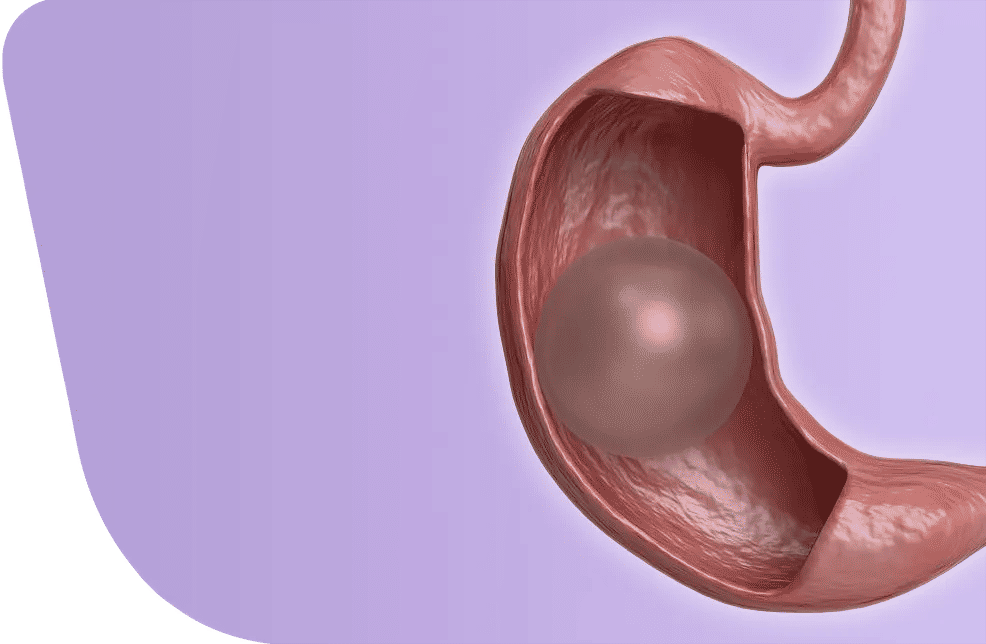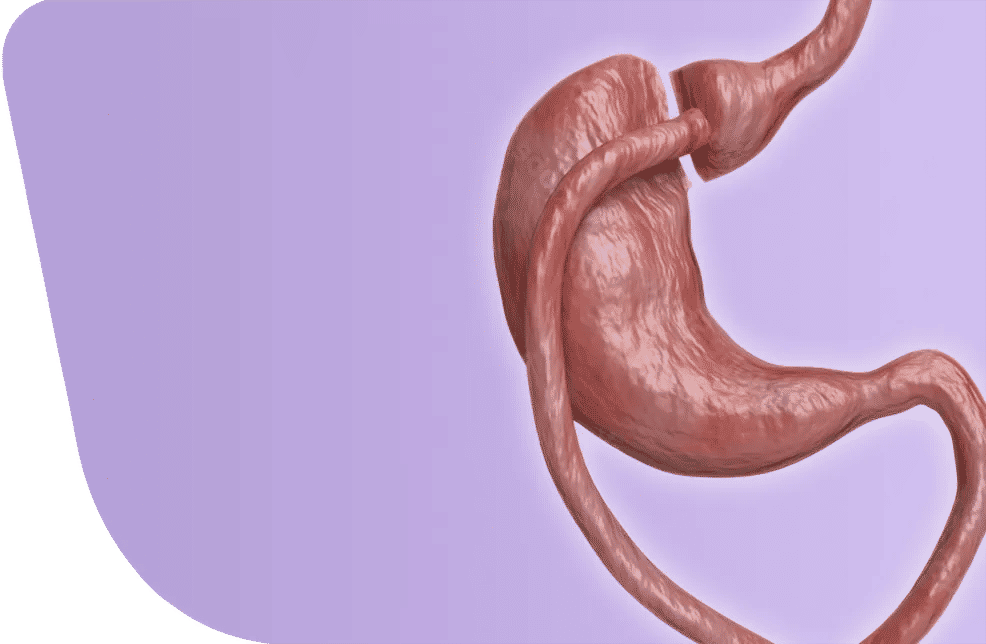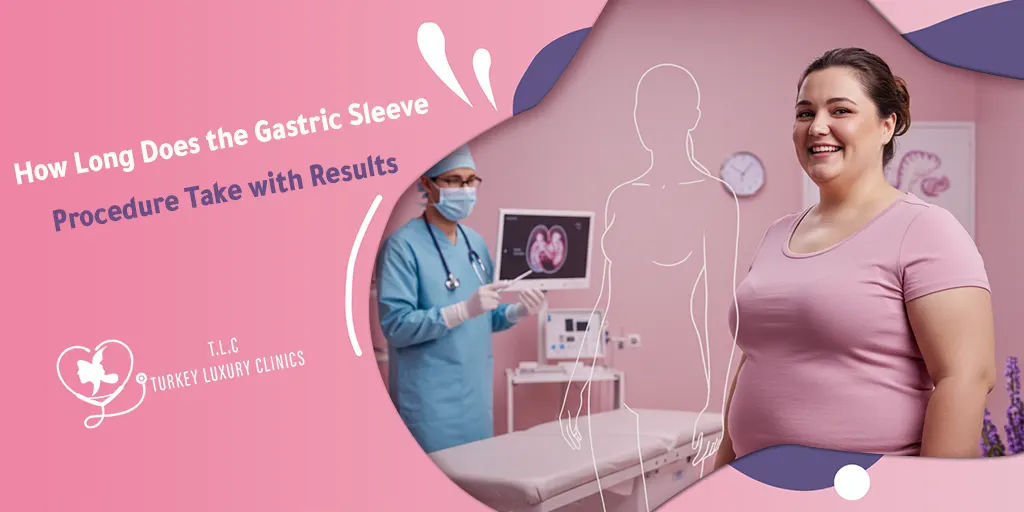- - Diarrhea After Gastric Sleeve
- - Causes of Diarrhea After Gastric Sleeve
- - Types of Diarrhea After Gastric Sleeve
- - Diarrhea Color After Gastric Sleeve and What it Means
- - When Does Diarrhea Happen After Gastric Sleeve Surgery?
- - How to Stop Diarrhea After Gastric Sleeve?
- - How to Treat Diarrhea After Gastric Sleeve?
- - When Should You See a Doctor for Diarrhea After Gastric Sleeve?
- - Get Expert Consultation for Diarrhea After Gastric Sleeve With Turkey Luxury Clinics
Diarrhea is a common — and usually temporary — side effect after gastric sleeve surgery, as the body adjusts to changes in digestion and nutrient absorption.
But what kind of diarrhea is considered normal after gastric sleeve? How should you manage it safely? And when does it become a warning sign that requires medical attention?
In this article, we’ll answer all these questions and take a closer look at what to expect, how to deal with diarrhea effectively, and when it’s time to speak to your doctor.
Need help? Whether you’ve already had gastric sleeve surgery or are planning to undergo it, don’t hesitate to contact our specialists at Turkey Luxury Clinics for expert guidance and support.
Diarrhea After Gastric Sleeve
Diarrhea is normal after gastric sleeve surgery, especially during the early stages of recovery, due to changes in digestion, nutrient absorption, and bowel function.
However, it’s important to monitor symptoms closely, as persistent or severe diarrhea may indicate complications such as infections, food intolerances, or bile acid malabsorption.
Diarrhea, or loose stools, after gastric sleeve surgery can vary in frequency, color, and texture. It’s often accompanied by symptoms like cramping, bloating, or a sudden urge to use the bathroom.
Causes of Diarrhea After Gastric Sleeve
Diarrhea after gastric sleeve surgery is typically caused by changes in the structure and function of the stomach and intestines. These changes often lead to faster digestion, reduced nutrient absorption, and irregular bowel movements.
Here are the 6 most common causes of diarrhea after gastric sleeve surgery
1. Dumping Syndrome
Also called rapid gastric emptying, this happens when food — especially sugary foods — moves too quickly from the stomach to the small intestine.
It’s more common after gastric bypass but can still occur after sleeve surgery due to the reduced stomach size.
2. Bile Acid Malabsorption
Bile acids help digest fats and are normally reabsorbed in the intestines. However, after gastric sleeve, this process may be disrupted, leading to excess bile in the colon and chronic watery diarrhea.
3. Small Intestinal Bacterial Overgrowth (SIBO)
SIBO is a condition where too much bacteria grows in the small intestine.
After gastric sleeve surgery, changes in the size and movement of the intestines can create an environment where bacteria overgrow, leading to bloating, gas, and persistent diarrhea.
4. Food Intolerance
Food intolerance—when the body has trouble digesting specific foods—is common after gastric sleeve surgery and can be a major cause of diarrhea.
Lactose, artificial sweeteners, and high-fat foods are some of the most common triggers.
5. Diet-Related Habits
Eating too fast, drinking liquids with meals, or consuming high-fat or high-fiber foods can overwhelm your digestive system.
These habits may trigger diarrhea and increase the risk of dumping or malabsorption.
6. Exocrine Pancreatic Insufficiency (EPI)
In EPI, the pancreas doesn’t release enough enzymes to digest food properly.
It’s rare after sleeve surgery, but it can develop over time or be mistaken for other post-op symptoms like bloating or nutrient loss.
Other Less Common Medical Causes
In rare cases, diarrhea after gastric sleeve surgery may be linked to:
- Short bowel syndrome
- Endocrine disorders, such as hyperthyroidism
- Vagotomy-related digestive changes
Don’t let diarrhea stand in the way of the weight loss and health benefits of your gastric sleeve surgery.
Contact Turkey Luxury Clinics today to identify the cause and get expert support to manage your condition effectively.
Types of Diarrhea After Gastric Sleeve
Diarrhea after gastric sleeve surgery can show up in several different forms. Some are mild and temporary, while others may point to deeper digestive issues. Here's a breakdown of the most common types:
1. Acute vs. Chronic diarrhea after gastric sleeve
After gastric sleeve surgery, diarrhea can be either acute (sudden and short-term) or chronic (persistent and long-lasting).
Acute diarrhea typically starts suddenly, may feel severe, and lasts less than two weeks. It’s often triggered by dumping syndrome, sudden food intolerances, or changes in diet.
Chronic diarrhea is either persistent or in constant form which continues for more than four weeks, and may suggest underlying issues such as bile acid malabsorption, SIBO, or pancreatic insufficiency.
While severe diarrhea can appear in both types, it requires medical attention if it causes dehydration or disrupts daily life.
2. Watery diarrhea gastric sleeve
Watery diarrhea — when stool is completely liquid rather than just loose — is fairly common and normal during the first few weeks after gastric sleeve surgery.
3. Diarrhea with stomach cramps
Stomach cramps and diarrhea after gastric sleeve are common in the early recovery phase. They’re usually triggered by food intolerance, dumping syndrome, or eating too quickly. These cramps often occur shortly after meals and may improve with a slower eating pace, smaller portions, and avoiding known trigger foods.
4. Diarrhea with Gas and Bloating
Explosive gas and diarrhea after gastric sleeve can be signs of bacterial imbalance, such as small intestinal bacterial overgrowth (SIBO), or a reaction to poorly digested food. This type of gassy diarrhea is often accompanied by bloating and urgency, and it tends to improve with dietary changes or medical treatment.
5. Osmotic diarrhea
Osmotic Diarrhea after gastric sleeve When there's an excess of poorly absorbed substances in the digestive tract. The undigested substances draw water into the colon, leading to loose stools.
6. Secretory diarrhea
Secretory diarrhea after gastric sleeve occurs when the intestines actively release water, possibly due to bile acid malabsorption.
7. Fatty diarrhea (Steatorrhea)
Oily or pale stool caused by fat malabsorption, common in cases of pancreatic insufficiency.
Diarrhea Color After Gastric Sleeve and What it Means
The color of your stool in case of diarrhea after gastric sleeve surgery can explain the underlying cause of diarrhea, such as fat malabsorption, rapid digestion, or bile acid imbalance. Here's a detailed explanation:
Yellow Diarrhea
Yellow diarrhea after gastric sleeve indicates a fat malabsorption. This may be caused by bile acid issues, pancreatic enzyme deficiency, or a sensitivity to fatty foods.
Green Diarrhea
Green diarrhea after gastric sleeve is related to rapid food transit, where bile doesn’t break down fully. It can also result from green vegetables, iron supplements, or bacterial overgrowth like SIBO.
Black Diarrhea
Black diarrhea after gastric sleeve (or tarry stools) may suggest internal bleeding in the upper GI tract. This is not normal and should be addressed immediately, especially if accompanied by weakness or dizziness.
Orange Diarrhea
Orange stool after gastric sleeve is often harmless and linked to beta-carotene-rich foods (like carrots or sweet potatoes) or artificial dyes. Sometimes, it reflects mild bile or fat digestion issues.
Mucus in Diarrhea
Less common, but may appear due to irritation or inflammation in the intestinal lining.
When Does Diarrhea Happen After Gastric Sleeve Surgery?
Diarrhea after gastric sleeve can occur days, weeks, or even months later, depending on the cause and how the body adjusts to digestion changes.
- Diarrhea is normal during the first few days after gastric sleeve surgery — even after the first week — as the digestive system adjusts.
- However, diarrhea that begins 2 to 4 weeks after surgery is more likely to be triggered by food intolerances, such as sensitivity to high-fat meals, artificial sweeteners, or dumping syndrome.
- Diarrhea 6 weeks after gastric sleeve is still considered common and often reflects the body’s adjustment to changes in digestion and nutrient absorption.
- Later-onset diarrhea, occurring between 3 to 6 months after surgery, may indicate persistent digestive issues like malabsorption, chronic food intolerance, or bacterial overgrowth.
- Diarrhea occurring a year or more after gastric sleeve surgery is more complex to evaluate, as it may not always be directly related to the procedure. It’s important to consult your surgeon to rule out late complications or other medical issues.
For a deeper look into life long-term after gastric sleeve, including potential digestive changes, check out Gastric Sleeve 10 Years Later: What Will Your Life Look Like and read about: How to Lose Weight 2 Years After Gastric Sleeve?
How to Stop Diarrhea After Gastric Sleeve?
Managing diarrhea after gastric sleeve surgery usually involves making dietary changes, staying well hydrated, and sometimes adjusting medications. Avoiding trigger foods like high-fat, sugary, or very fibrous items often helps reduce symptoms.
For personalized advice, it’s best to consult your bariatric surgeon and a dietitian. They can create a tailored eating plan and identify any underlying causes, such as medication side effects or nutrient malabsorption.
How to Treat Diarrhea After Gastric Sleeve?
The best way to manage diarrhea after gastric sleeve is to avoid trigger foods, follow your diet plan closely, and use medication when necessary. Follow these tips:
- Gradually increase fiber intake: Start with soluble fibers like oatmeal, bananas, and apples to help absorb excess stool fluid without worsening diarrhea.
- Stay hydrated: Drink at least 64 ounces of fluids daily, including electrolyte-rich drinks like sports drinks or oral rehydration solutions, to prevent dehydration.
- Identify and avoid trigger foods: Common triggers include high-fat foods, dairy (due to lactose intolerance), and foods high in salicylates or histamine.
- Eat smaller, frequent meals: Smaller portions spread throughout the day ease digestion and reduce diarrhea episodes.
- Review medications: Some medicines may cause diarrhea—consult your doctor to adjust doses or find alternatives.
- Consider probiotics: Supplements or probiotic-rich foods can help balance gut bacteria and reduce symptoms.
- Consult healthcare professionals: Always seek advice from your bariatric surgeon or registered dietitian for personalized guidance and to rule out other health issues.
- Take medications if needed: Some anti-diarrheal medications are safe after gastric sleeve surgery and may help manage symptoms effectively. However, it's essential to consult your doctor before using any medication.
When Should You See a Doctor for Diarrhea After Gastric Sleeve?
You should contact your doctor if you experience any of the following after gastric sleeve surgery:
- Acute diarrhea lasting more than 2 weeks.
- Severe symptoms such as dehydration, intense abdominal cramps, or blood in your stool.
- Diarrhea that worsens over time.
- Unexplained weight loss.
- Diarrhea that doesn’t improve despite changes in diet and medication.
Prompt medical advice is important to rule out complications and get the right treatment.
Interesting read:
What They Don’t Tell You About Gastric Sleeve Surgery?
Get Expert Consultation for Diarrhea After Gastric Sleeve With Turkey Luxury Clinics
Are you struggling with diarrhea after gastric sleeve surgery and need personalized advice?
Don’t hesitate to get expert consultation from Turkey Luxury Clinics.
Our specialists will guide you step by step to identify the cause, customize a dietary and
medication plan, and support you throughout your recovery—helping you manage this side effect safely while staying on track with your weight loss journey.
Feel free to contact us for a personalized plan tailored just for you with Turkey luxury Clinic experts.














.webp)
.webp)
.webp)
.webp)

